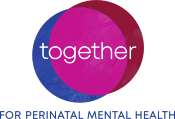Think back to your experiences of sexual health education. What did you learn about pregnancy? Perhaps you learned how to prevent it – although I would hazard a guess that the information didn’t go far beyond “Wear a condom,” “Don’t have sex,” or “Birth control exists but we aren’t going to tell you much about it.” Maybe you learned about sperm and eggs, but I imagine few learned about emergency contraception or about pregnancy options including parenting, adoption and abortion. Perhaps you were taught nothing at all – and you wouldn’t be alone in that reality, either.
When we learn about pregnancy, it is often romanticized as a key journey in life-a milestone-which you will embark on only when you are older, financially stable, and in a heterosexual, cisgender marriage. You will create a pregnancy easily via sex involving a penis and vagina, being pregnant will be beautiful and uncomplicated, and you will naturally know what to do once the baby arrives.
But this is so far from the lived experiences of many. We don’t talk openly about the myriad of ways families can be formed and when we do, we create hierarchies about the best ways to do this. LGBTQ2S+ people are commonly left out of pregnancy and parenting education all together. We still leave little room for the possibility that people may not want to get pregnant or parent at all, and we don’t talk about pregnancy options such as abortion. Many people who do want to get pregnant will struggle with infertility, miscarriage, and pregnancy loss. Additionally, countless will be coerced into continuing a pregnancy and others will have no financial, material, or emotional support systems in place.
We don’t talk nearly enough about the physical, emotional and social changes and realities of being pregnant, giving birth, and parenting. We set people up to struggle by not offering all the information, by glossing over how and why people may need support, and by painting a surface level ideal which all people are expected to successfully achieve. When we uphold a societal expectation that pregnancy and parenting are expected, manageable, and uncomplicated we are directly impacting people’s social, emotional, and mental health and well-being. This romanticized narrative provides such little information about what actually happens to people’s bodies when they are pregnant that the various changes and effects can be overwhelming and scary. When someone is struggling (which is common), the real lack of transparent information, and the normalization that pregnancy/parenting is purely wonderful and innate can leave them feeling helpless, alone and like a failure.
What if we stopped framing pregnancy as a beautiful mystery or life goal for when you are married, or as a punishment for having sex? What if we just talked about it honestly? Imagine a world where all people receive age-appropriate education which prioritizes choice and autonomy in every sense. Where young people learn that there are many different ways to create a family. Where we speak openly about the complexities of pregnancy, being clear that a person with a uterus gets to choose if they wish to be pregnant. Where education includes the idea that some people want to get pregnant and are unable to, and that pregnancy loss is common.
We could live in this world. We could build real, comprehensive information about pregnancy and all of the social, emotional, mental and physical components into the health and physical education curriculum. We could ensure it is also provided to people of all ages through healthcare providers, prenatal/parenting classes and more. This would allow people to make truly informed choices and provide vital and realistic information and expectations. Information is powerful both at an individual and collective level. If more people had a complex understanding of pregnancy it could shape so many important aspects of our communities. For example, it could dismantle stigma around needing support during pregnancy, after giving birth and after pregnancy loss, or change our healthcare system to better care for people experiencing pregnancies or provide more funding for inclusive, client-centered community services There is so much that we could do better.
It’s more than time that we recognize we need real, honest and inclusive education from the start. You are not broken or a failure if your experience does not look the way your schoolteacher or prenatal/parenting class described it to you. There is room for your story here, and in fact it’s our collective stories which can help make space for others. Pregnancy and parenting can be many things and your experiences are valid. You are not broken or alone, we just don’t talk about it.






